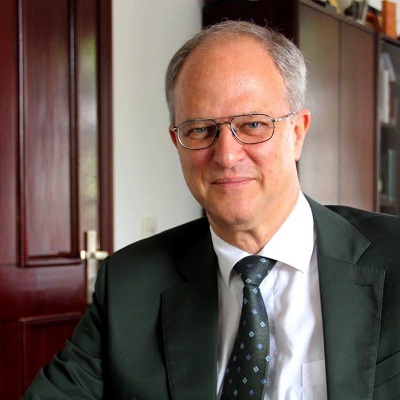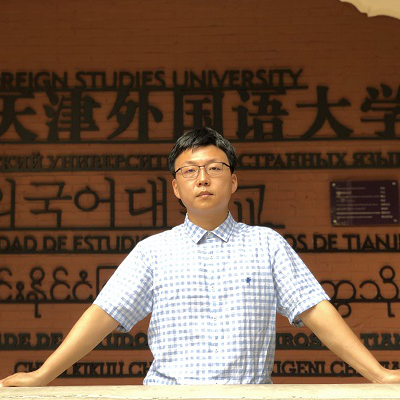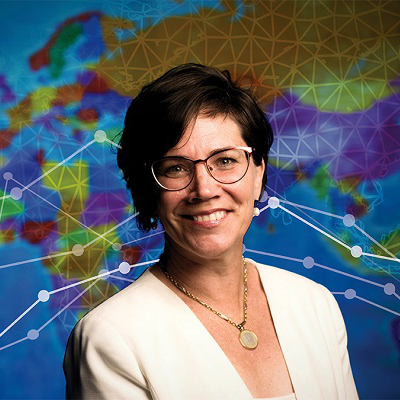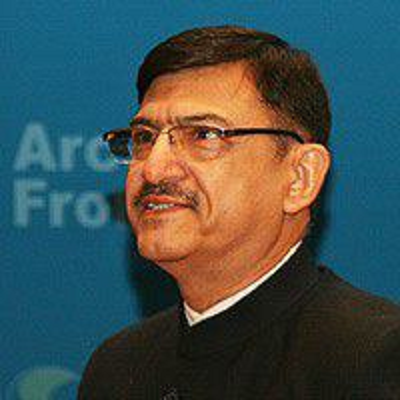What's in this issue and what is the Great Game?
Watch our short introduction video to learn more about the Indo-Pacific, the Great Game and which nations are engaged there and what to expect from this issue of Diplomatic Briefing.
Youtube, KAS Cambodia
Yet Another Great Game?
Is the region just a new battleground for great powers? What will the potential new world order to be decided in the Indo-Pacific look like? Will we witness the end of multilateralism and the return to a bipolar system – this time between China and the US?
Originally, “The Great Game” was the name commentators gave to the rivalry between Great Britain and the Russian Empire in the 19th century when both empires fought for influence in Central Asia and the Pacific. In recent years, the Indo-Pacific has again become a rallying point for international actors to articulate their strategies and gain power.
These questions and many more will be discussed in this issue of the Diplomatic Briefing, a biannual magazine on International Relations, edited by KAS Cambodia in cooperation with the Cambodian Institute for Cooperation and Peace (CICP). This publication brings together authors from all over the world to discuss the Indo-Pacific region from their specific vantage points and analyze the behavior of specific countries or actors.
With China building up its power via the New Silk Road and the String of Pearls and confronting India and the Quad-countries in the process, we have a look at how the red giant sees the region and how in turn Australia, the US, India and Japan view it.
We also have a look at Europe’s more distasteful past in the Indo-Pacific but also at its future there, where we look at what Germany, France and the European Union want to achieve in the region.
We will also look at what the Indo-Pacific means for ASEAN and more specifically Cambodia. Is ASEAN-centrality compromised by the Indo-Pacific or does it only enhance it?
Click here to read on your PC (.pdf Version)
Click here to read on your Tablet (.epub Version)
Click here to read on your Amazon device (.mobi Version)
Whats in this issue and what is the Great Game? (Khmer language video)
Watch our short introduction video to learn more about the Indo-Pacific, the Great Game and which nations are engaged there and what to expect from this issue of Diplomatic Briefing in Khmer for the Khmer language version of this issue.
Youtube, KAS Cambodia
Authors and Content

"The German Government does not see containment or decoupling as a viable option. And China is most relevant to the German economy. But - and this is a hard task - China must be convinced that it is in its very own interest to pursue its legitimate goals in a multilateral framework, including practical contributions to further developing the rule basedorder as acceptable to other parties."
The first article in the latest issue of the Diplomatic Briefing is an insightful interview with H.E. Mr. Christian Berger, the German Ambassador to Cambodia. In this interview, Berger explains the context of the new German "Policy Guidelines for the Indo-Pacific".

"For Japan, the vision of FOIP consists of three major pillars. The first of these is the promotion of the undamental principles of theinternational community, sch as the rule of law, freedom of navigation and free trade. Second is the pursuit of economic prosperity through the enhancement of connectivity. This would include quality infrastructure development that is consistent with international standards. Third is the commitment to peace and stability which would be achieved through initiatives such as capacity building for maritime law enforcement, disaster risk reduction and nuclear non-proliferation."
In this opinion-piece, H.E. Mr. Mikami Masahiro, the Japanese Ambassador to Cambodia, outlines his thoughts on the relationship between Cambodia, Japan and the concept of the Free and Open Indo-Pacific.

"Cambodia has associated itself with the Indo-Pacific under only two circumstances. First, Prime Minister Hun Sen was the first ASEAN leader to express full support for Japan’s FOIP during his official visit to Tokyo in 2017. Second, Cambodia has endorsed the AOIP, especially the principles pertaining to ASEAN centrality, openness, inclusivity, and respect for sovereignty. This clearly explains the Kingdom’s cautious attitude toward the concept and the importance it attaches to Japan and ASEAN."
Dr. Cheunboran Chanborey offers yet more in-depth analysis on the Cambodian perspective on the concept of the Free and Open Indo-Pacific. Learn how the Kingdom defines its role in the region.

"Despite positive progress, there are persisting challenges ahead. ASEAN members need to embrace the proactive engagement through “pragmatic cooperation”; develop a clear and strategic direction to efficiently move the AOIP forward; and foresee and prepare for the dynamic geostrategic landscape."
In the fourth article, the Deputy Director of CICP and lead editor of the Diplomatic Briefing, Ms. Pich Charadine, takes on the ASEAN-perspective. What can an ASEAN vision of the Indo-Pacific look like?

"Taking these points collectively, the use of the term containment as a concept describing American policy towards China is invalid. Yet perhaps this also raises a more important point. The Cold War ended thirty years ago, and the world has since changed enormously. In this author’s view, it is time to develop a more precise, timely, and relevant vocabulary in which to discuss contemporary geopolitics in general and the Indo-Pacific Strategy in particular."
The Indo-Pacific is rapidly gaining in importance for the United States of America. Dr. Bradley J. Murg takes a closer look at the history of containment in US-politics and the Indo-Pacific strategy.

"The Chinese government and academia are aware of the detriments and risks of FOIP not only to BRI but also to regional stability. Despite all those negative factors brought about by FOIP, China will continue its cooperative diplomacy and seek cooperation with all parties, including the US and its Quad allies, to construct a sustainable, inclusive, and fair new order."
The Free and Open Indo-Pacific has a significant impact on China. In his article, Mr. Zhang Zijie explains China’s interpretation of the Western commitment.

"The reality is that China will continue to be an important regional actor and critical trading partner in Australia’s future. How Australia rebuilds and sustains engagement with China for the long term will be the marker of its diplomatic tenacity. There is no straightforward approach, but more constructive forms of engagement—within and outside official spheres—are to be encouraged."
Australia is an important player in the Indo-Pacific. Prof. Caitlin Byrne takes a broader look at Australia's diplomatic efforts in a period of contest.

"The concept of the Indo-Pacific region is in the midst of being strongly contested and can potentially create blocks led by China, supported by Russia, and the US. These political blocks will determine the geopolitical dynamics of the Indo-Pacific region and its pathways that will shape the future of Asian security. ASEAN member states will be under enormous pressure to make choices that can potentially add to the fast-evolving insecurity in the Indo-Pacific region."
India is a name-giving element of the Indo-Pacific. In his article, Dr. Vijay Sakuja provides important insights into India's view of the evolving power dynamics.

"The upcoming Indo-Pacific strategy marks a new era for the EU in its approach toward Asia, but it has yet to be put into action with deeds. First, the strategy diversifies EU relations with Asia. Second, it builds on partnerships and multilateral agreements while promoting its values of democracy and human rights, and offering new assertiveness when it comes to defending the EU’s (economic) interests."
The German government's new Indo-Pacific strategy highlights Europe's increased interest in the region. Learn from Ms. Isabel Weininger, KAS Country Representative, how Europe sees its role.

"France’s strategy for an inclusive Indo-Pacific region is to act as an inclusive and stabilizing mediating power."
France was among the first European powers to get involved in the Indo-Pacific. Find out in Mr. Laurent Triponey’s article why the region is a priority for the French Republic.

"The imperial order in the end was neither inevitable nor sustainable. The Indo-Pacific is a region of breathtaking wealth and diversity. The enormous potential of this diversity is best realized when all actors involved in the region retains their unique voice and regional order is based on cooperation, and shared values and principles."
Last but not least, the article by Mr. Maurizio Paciello takes a look at the colonial past of the Indo-Pacific. Find out more about the political and social genesis of the region.





You need to sign in in order to comment.